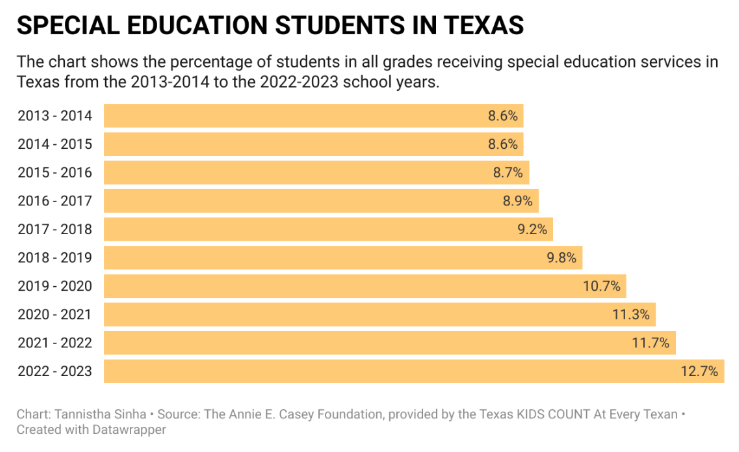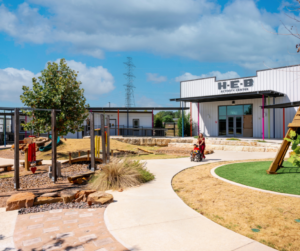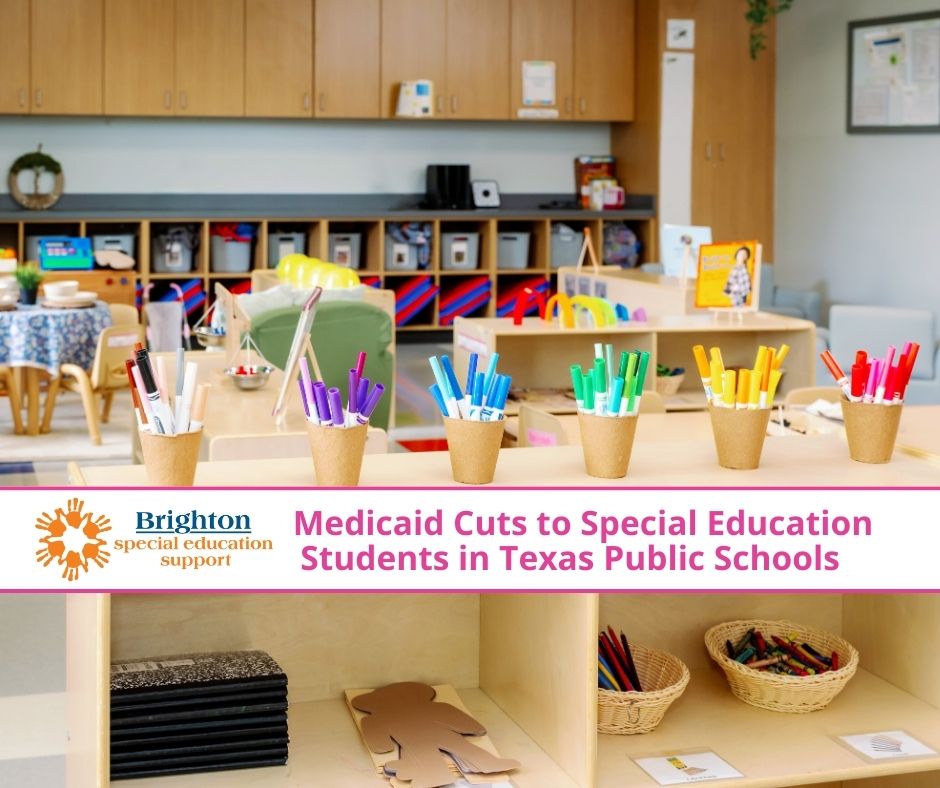On December 15, 2023, the Texas Health and Human Services Commission (THHSC) advised districts that their Medicaid reimbursements for special education students were being cut by over $300 million. (Texas Standard) In San Antonio, Northside ISD will receive $14 million less than expected, accounting for the highest cut in Medicaid reimbursements among all the school districts.
The THHSC reimburses school districts for Medicaid dollars spent through the School Health and Related Services program (SHARS). This allows schools to bill Medicaid for services such as assisting with feeding, toileting, and various therapy services provided at the school. SHARS reimbursement is provided to students who are eligible for Medicaid and are enrolled in a special education program in a public school.

For the 2022 school year, the THHSC budgeted $740 million of reimbursements to schools. However, according to an audit by the Department of Health and Human Services, Texas improperly received Medicaid reimbursement for health-related school-based services. Due to the findings, Texas schools will receive less Medicaid funding for special education students during future school years to make up for the improper Medicaid reimbursements.
Without this assistance, schools will face an uphill battle to continue to ensure the same quality of services and care for our children with special needs. These cuts will have a lasting impact and far-reaching effects on students, educators, and the overall educational system.
More information on changes to SHARS and Medicaid reimbursement can be found here.
Potential Impacts from the Medicaid Reimbursement Cuts:
1. Reduced Individualized Attention
Special education often requires smaller class sizes and personalized attention.
2. Limited Specialized Services
A reduction or elimination of specialized services such as speech therapy, occupational therapy, and counseling offered at the school.
3. Teacher Training and Professional Development
Special education teachers need ongoing training to stay updated on the latest strategies and methodologies. Budget cuts may limit opportunities for professional development, affecting the quality of education these teachers can provide.
4. Increased Workload for Teachers
Teachers in special education often work with diverse needs and require additional preparation time. Budget shortfalls due to Medicaid Reimbursement cuts may increase workloads and stress for teachers, potentially impacting the quality of instruction.
5. Limited Parental Involvement
Limited resources available for facilitating effective communication and involvement, potentially leading to a breakdown in the support network for students.
6. Impact on Inclusion Programs
Inclusive education, which integrates students with special needs into regular classrooms, may be compromised. Budget cuts can result in fewer support staff, making it challenging to maintain an inclusive environment.
7. Long-term Consequences for Students, Schools, and the Community
Failing to provide adequate support for students with special needs can have long-term consequences for society, as it may limit their ability to participate fully in the workforce and community. Higher risk of dropping out if adequate services are not available. This could contribute to a cycle of dependency on social services.
Additionally, the budget reductions will affect the entire district and schools. Funding cuts will require a redistribution of district monies to make up for the deficit in special education funding. Therefore, policymakers, educators, and communities need to be aware of the potential consequences of the Medicaid reimbursement cuts. It must be a priority to advocate for the importance of maintaining and, when possible, increasing funding for special education programs. Without this much-needed assistance, our children, teachers, and the quality of public education as a whole will suffer.
 Here’s How the Brighton Center and Parents Can Help:
Here’s How the Brighton Center and Parents Can Help:
With less funding, it is vital that parents and schools work together. There are different ways to support the schools while still ensuring your child’s needs are met. You can advocate for your child’s school and teachers by reaching out to community leaders. Attend school board meetings, write letters to elected officials, and participate in parent-teacher associations or other advocacy groups. By raising awareness about the challenges facing the school due to Medicaid Reimbursement cuts, you can help garner support for increased funding or other forms of assistance.
Brighton Center’s Special Education Support Services (SESS) can provide parent training and teacher workshops at your child’s school. We can serve as a mentor to parents and schools by teaching soft skills of advocacy for parents and providing tailored training for schools or districts on various special education and advocacy topics.
In addition, Brighton Special Education Consultants work with parents to be their child and the school’s biggest advocate. We can help you understand your child’s IEP, discuss any concerns with recommendations on the next steps, walk you through the ARD meeting process, and attend ARDs to make sure your child’s best interests are being met. However, regardless of a district’s budget, Brighton works with the school and parents to make sure the appropriate services are integrated into each child’s Individualized Education Program.
We Can Tackle This Together
At the end of the day, the entire community must work together to maintain a child-centered process. This will require all parties to establish open communication with each other. This will foster collaborative relationships where schools and parents are working together towards the same goal, instead of being on opposing sides. We all must come together to guarantee that all our children, regardless of abilities, thrive at school.

Brighton Special Education Support Services helps kids in school get the evaluations, assessments, and services they need from the school through our free workshops and one-on-one education advocacy support. Let us help you navigate through underfunded and understaffed school districts. Contact us by completing our convenient online form and someone will be in touch within 48 hours. If you need to reach us sooner, you may call 210.826.4492.















